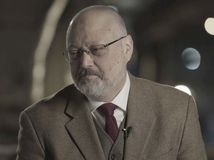determinism, free will, free will illusion
10 reasons people can’t let go of free will belief
This week I’d like to focus on 10 reasons why people find it difficult to let go of their belief in free will (as defined here), even when given the evidence against it. There are many factors involved, so as always, this is just a brief list from the many possibilities. Some may apply to some people, others may apply to other people, but there is usually a good mix of these that make it hard for people to give up their free will belief.
So what’s one to do about this? It depends, but persistence seems to be one key in combating these reasons. And with that, on to the 10 reasons why people can’t let go of their free will belief:
1) Deeply ingrained free will beliefcheck-free-will
Since the belief in free will is something that most intuit naturally, and such free will abilities are often re-enforced by others, such a “free will” psychology is something that becomes deeply ingrained in brains at a very early age and re-enforced throughout one’s life. Due to this, the idea that one does not have these free will abilities is hard to get past, even when the evidence against free will is glaring at them. Ding ding… free will belief: 1… rational reasoning:0
check-free-will2) Egotism
An excessive sense of self-importance can cloud a persons judgement about whether they are the true authors of their actions. If someone thinks they are the ultimate authors of their own decisions and actions, such allows them to place them-self on a pedestal above others. They become something overly special. With the understanding that they aren’t the true authors, such reduces down an excessive sense of self-importance. This reduction is often rejected off-hand. Free will belief holds on strong as it flexes in the mirror and imagines how sexy it.
check-free-will3) A psychological need to blame others
The capacity for blaming ourselves and others is one that is taught from an early age. Indeed early on we are taught that we shouldn’t have done something, or we see our parents blaming others. We are often punished in ways that shame, embarrass, and make us blame ourselves for what we had done. We then project this on to blame and shame others. This is most often done under the hidden assumption that we (and others) could have done, of our own accord, otherwise. Once we have this built-in blame mechanism, it becomes automatic, and any system that rejects the notion that people are to blame goes against this psychological response, causing our mind to either parse away that idea or to rationalize a poor defense against it….often in the form of “if we can’t blame anyone then we should let all the criminals free to run amuck in the streets” as if such is a good argument. Free will belief wags it’s finger at logic and says “tsk tsk…shame on you”.
check-free-will4) Desire for retributivism
We watch movies and read books all the time in which the good guy gets revenge on the bad guy in the end, and something about that thought tends to be pleasing to our psyche. An eye for an eye mentality is something passed down from generation to generation in many cultures. This “people should get what they deserve” mentality is a tough nut to crack. As soon as someone recognizes that such deserve idea is problematic if the person couldn’t have, of their own accord, done otherwise, a rejection of the position that there is no free will tends to take place. Free will belief places rationality in a headlock and gives it a nookie, thinking it deserves it.
check-free-will5) Need to be in control
The feeling that one isn’t entirely “in control” of themselves can be repulsive to many. Feeling we have full control over our actions is something that’s hard to get past, so the recognition that we are products of our genetics and environment doesn’t sit well with many. Free will belief takes the wheel, and drives over logic.
check-free-will6) Need to take all the credit
Often when a person does something good, they desire to take credit for that good deed. Whether that be donating to charity, helping another person, writing a book, or working hard at anything at all. Some may feel that the lack of free will would take away much if not all of such credit. This one tends to relate in ways to egotism, in that it’s a psychology that tries to avoid anything that may take away some self-importance. Free will belief looks around for an “ignoring critical thinking” award.
check-free-will7) Wealth
Some people who accumulate a certain degree of wealth may find it hard to swallow the idea that they really don’t deserve their wealth over others, especially if they worked very hard for their life status. This often lends to the idea that a poor person could simply pickup themselves by their bootstraps to make t to the top. The lack of free will implies that no person is more or less deserving of anything, and that includes wealth, especially excessive wealth. It implies that the wealth people obtain was a product of long causal lines that gave the person the genetics and environment to obtain what they did, and that the poor too were a product of long causal lines.
Some excessively wealthy people, however, will refuse to see this. They want to justify the excess as something they truly do deserve over others, which means parsing away the facts about free will, ignoring other facts by redefining free will, or poor rationalizations in support of free will. Free will belief wins the causal lottery, looking down on logic for losing.
check-free-will8) Hatred and anger
Many people hold anger, hatred, or some type of grudge of another for what they have done in the past. The lack of free will means they’d have to admit that such emotions aren’t very rational to hold on to since those people couldn’t have, of their own accord, done otherwise. These emotions tie people down, in certain ways, to their free will belief. The fact that anger often precedes rationality, means that if it happens, people often want to justify it other than just assume they were irrational. The justification of anger leads to the justification that the person they are angry at could have, of their own accord, done otherwise. If they understand they couldn’t have, then the anger falls back down on to them as being “overly emotional” or “irrational”, something (ironically) an overly emotional or irrational person will often refuse to admit. To stay justified, rational blameworthiness must hold. A pissed-off free will belief yells at the law of non-contradiction making it run away.
check-free-will9) The feeling that we are contained “selves”
This feeling of an “I” is a powerful feeling. It’s hard to imagine that what we perceive as our “self” really extends outward to all of the events that make up our body and conscious thought. It’s difficult to move away from this idea that we are little contained things and into the idea that we aren’t really contained at all, and that everything around us influences who we really are. The environment that is around us is basically a part of us just as much as our body in that if we had a different environment, we would have different thoughts, feelings, and so on. There’s no real way to separate out these from who we really are. But being “in a body” and seeing ourselves as a contained “mind”, prevents us from seeing that what we think is “us” really isn’t what we think it is, and that rather we and the environment are fused together. For many, this distribution of who they are into the environment (including others they interact with) takes away that sense of “self”…something that many can’t psychologically handle. This can lead to a rejection of many of the ideas surrounding the understanding that we don’t have free will. Free will belief places a protective bubble around itself, not letting in logic, reason, or rationality.
check-free-will10) Thinking that free will is needed for morality
The idea that, without free will, morality falls apart, is a common idea. In fact, there are a number of moral systems that rely on this idea that we need to freely choose to act moral or immoral. Certain consequentialist morality/ethics are entirely compatible with the lack of free will. People, however, have a hard time accepting this. This often happens via a confusion between morality and “moral responsibility” after an action was taken. It often falls to the desire to blame a person who acts immoral. The type of moral system that is compatible isn’t, however, about blaming people for acting immoral, it’s about creating a causal mechanism that will lead to moral action and away from immoral action in the future. It’s a future concerned moral system that itself comes about causally. For many, however, they don’t understand this kind of morality, and the need for their moral blaming system takes over, along with the rejection of the non-existence of free will. Free will belief takes the perceived moral action of whacking critical thinking with a stick.
I’m currently writing a book on the topic of secular morality without free will, which will detail out the actual case for this mistaken belief that free will is required for morality in #10 (in fact the lack of free will is an important understanding for any moral system). The above comment is not meant to be an argument, just a suggestion of one thing that causes some people not to recognize how free will is impossible.
This list of 10 only reflects only some of the more common propensities that may initially prevent someone from recognizing that free will doesn’t exist. Of course there are many others such as religious belief that god gave them free will, the “free will” term used in media (books, movies, online, court cases, etc.) in a way that such is just assumed, and on and on. Regardless of all of these reasons that cause one to hold tightly to their free will belief, there is good reason to believe they can be circumvented with time and effort.
If people get bombarded with the understanding that free will doesn’t exist and explanations as to why it doesn’t, eventually some of these problems holding people back get dropped, opening a doorway for the evidence against free will to get through. Though free will belief may win many battles within an individual, such doesn’t imply it will win the war against reason.
Once reason breaks through the gates, there is often an initial confusion, sometimes a problematic conflation between fatalism and determinism, and often a sort of cognitive dissonance that takes place between old and new ideas. This often drives the person to learn more, and eventually those old ideas change, the confusions get cleared up, and true free will skepticism takes hold. In the long run, this is a good thing. If you are unsure why, read 10 benefits of not believing in free will. If you are looking for a more thorough and detailed understanding of why free will is logically incoherent, and why this understanding is so important, please take a look at Breaking the Free Will Illusion for the Betterment of Humankind, and also subscribe to this very blog and read many of the posts on it.




Celá debata | RSS tejto debaty